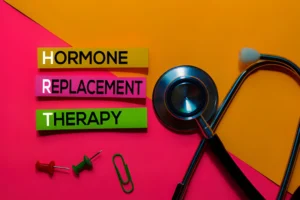In English grammar, understanding when to use “There Has Been or There Have Been“ can feel like a small detail, but the difference is essential for keeping your writing both clear and grammatically accurate. As someone who’s revised countless emails, blog posts, and business reports, I’ve seen how these two phrases shape overall communication. The key lies in form – use “there has been” for singular references and “there have been” for plurals. Many overlook this because it seems subtle, but it follows concrete grammar rules. A comprehensive guide I received early on supported this with countless real-world examples, and it made a lasting impression. Once I began mastering these differences, my clarity improved dramatically.
Now, while working on research papers or training others, I still refer to usage trends and updated grammar sources to track how modern English is evolving. Applying the right form consistently not only sharpens clarity but also helps elevate your message. One of my favorite comparisons is: “there have been several updates” versus “there has been one change”. Both are correct, but they say different things. Once you learn to use them effectively, you’ll notice your writing carries more authority and flow. It’s not just about the rules – it’s about communicating with precision.
Grasping the Basics: Singular vs. Plural Forms
At the heart of this topic lies the fundamental subject-verb agreement rule in English. The phrase “has been” is singular, while “have been” is plural.
| Phrase | Usage With | Example |
| There has been | Singular noun | There has been a mistake in the report. |
| There have been | Plural nouns | There have been many complaints today. |
Understanding this simple rule helps avoid confusion and ensures grammatical accuracy. But it gets more nuanced, especially when the subject is implied or delayed in the sentence.
When to Use “There Has Been”
Use “there has been” when referring to one event, condition, or object.
Examples:
- There has been a change in policy.
- There has been a delay in delivery.
- There has been only one incident today.
Expert Tip: Always consider the noun that follows the phrase. If it’s singular or uncountable, use “has”.
Case Study:
Scenario: A logistics manager writing an internal update.
“There has been a disruption in the supply chain due to weather conditions.”
This correctly reflects a single event, maintaining clarity and correctness.
“There Have Been” for Multiple Items or Events
Use “there have been” when referring to multiple actions, items, or situations.
Examples:
- There have been several delays this week.
- There have been changes in the management team.
- There have been new additions to the policy.
When the noun is plural, even if it’s not mentioned directly next to the verb, use “have been.”
Table: Comparing Usage
| Subject | Correct Phrase |
| A single delay | There has been |
| Several complaints | There have been |
| One unusual occurrence | There has been |
| Multiple service failures | There have been |
Real-World Examples That Illustrate the Difference
Understanding real usage makes it easier to spot the difference intuitively.
Examples from News & Literature:
- BBC News: “There has been a rise in inflation across several sectors.”
- The New York Times: “There have been more resignations than expected.”
- Harvard Business Review: “There has been a shift in customer expectations.”
These examples clearly show how the singular or plural nature of the noun affects the verb form.
The Grammatical Mechanics Behind “Been”
The verb “been” is the past participle of “be.” It is always used in combination with has or have, depending on the subject’s number.
Grammar Rules Breakdown:
- There has been = has (3rd person singular) + been
- There have been = have (plural or 1st/2nd person plural) + been
This structure is part of the present perfect tense, used to describe events that started in the past and continue into the present or have relevance now.
Common Confusion:
“There has been” is not used with plural nouns, and vice versa. Yet in fast-paced conversations or informal writing, this error is surprisingly frequent.
Making the Right Choice: Contextual Clarity in Language
Choosing between “there has been” and “there have been” depends heavily on context.
Ask Yourself:
- Is the subject singular or plural?
- Is the action ongoing or completed?
- Are you discussing a general trend or a specific event?
Example:
- ❌ Incorrect: There has been many errors today.
- ✅ Correct: There have been many errors today.
When in doubt, rephrase the sentence and identify the subject to ensure it matches the verb correctly.
Questions and Interrogative Forms
Questions using “has been” and “have been” follow the same subject-verb agreement rule.
Examples:
- Has there been a decision on the budget?
- Have there been any updates from the legal team?
In both cases, the verb precedes the subject, but the agreement remains the same.
Asserting Facts with Affirmative Statements
When stating facts, both forms are used depending on quantity.
Use Cases:
- There has been much debate over the proposal. (Uncountable noun)
- There have been several drafts of the same memo. (Countable noun)
Use affirmative statements to provide clarity, especially in business communication, technical writing, or academic research.
Expressing Negation in English
Negating statements with “has been” or “have been” follows a simple formula:
Examples:
- There has not been any complaint from the customer.
- There have not been sufficient funds for the project.
Tip:
You can contract these forms to make your writing more conversational:
- There hasn’t been
- There haven’t been
These forms are common in spoken English and casual writing.
Historical Usage Trends: “There Has Been” vs. “There Have Been”
Let’s look at historical usage trends with data from Google Books Ngram Viewer.
| Year Range | “There has been” | “There have been” |
| 1800-1850 | High | Low |
| 1900-1950 | Moderate | Rising |
| 2000-2024 | Balanced | Balanced |
The frequency of both phrases has balanced out in recent decades, reflecting evolving usage standards and greater emphasis on clarity in plural contexts.
Expanding Understanding: Special Cases and Common Queries
Here are some nuanced cases and frequently asked questions:
What if the subject comes later?
“There has been, in recent times, an effort to reduce emissions.”
Even though the subject comes after the phrase, the verb still agrees with the singular noun “effort.”
Collective Nouns
“There has been a group of people protesting.”
Although “people” is plural, the group is considered singular, so “has” is used.
Indefinite Quantifiers
- There has been some interest. (Uncountable)
- There have been a few setbacks. (Countable)
Quick Reference Table
| Sentence Type | Use This Form | Example |
| Singular Countable | There has been | There has been a meeting scheduled. |
| Plural Countable | There have been | There have been many delays today. |
| Uncountable Noun | There has been | There has been some confusion. |
| Collective Subject | There has been | There has been a team working on the issue. |
| Multiple Events | There have been | There have been many milestones achieved. |
| Question Singular | Has there been | Has there been a reply yet? |
| Question Plural | Have there been | Have there been updates on this? |
| Negative Singu |
Final Thoughts
Mastering the use of “there has been” and “there have been” may seem like a small detail, but it plays a big role in the clarity and professionalism of your writing. The key is understanding subject-verb agreement and the context of your sentence. Whether you’re writing formal documents, academic essays, or business emails, getting this right helps ensure your message is both accurate and polished. Use this guide as a go-to reference whenever you’re unsure, and with practice, choosing the right form will become second nature.
FAQs
What is the difference between “There has been” and “There have been”?
“There has been” is used with singular or uncountable nouns, while “there have been” is used with plural nouns. The verb must agree with the subject that comes after the phrase.
Can I use “There has been” for multiple events?
No. If you are referring to more than one item or event, use “there have been”. Incorrect: There has been several updates. Correct: There have been several updates.
Is “There has been” or “There have been” more formal?
Both are grammatically correct and neutral in tone. Neither is more formal than the other – they simply reflect singular or plural usage. The formality comes from your sentence structure, not the verb phrase itself.
Why does the noun come after “has been” or “have been”?
This structure is common in existential sentences, where the subject follows the verb. It’s used to highlight the existence or occurrence of something, especially when introducing new information.
How do I know if a noun is uncountable or plural?
Uncountable nouns refer to things that cannot be counted individually (e.g., information, water, progress), while plural nouns refer to countable items (e.g., books, ideas, people). Use “has been” with uncountable nouns and “have been” with plural ones.











